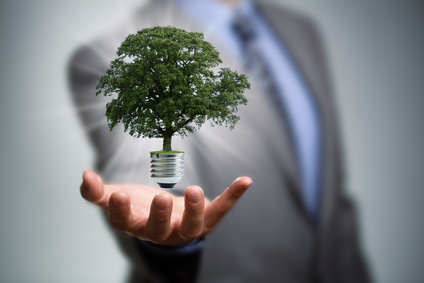Resourceful Earth Day (celebrate freedom, innovation)

There is a certain fringe of the environmentalist movement whose members have almost nothing good to say about their fellow men and women. If not for humans, they sometimes explicitly argue, the Earth would be a wonderful place. The lion might not lie down with the lamb, but at least “nature” would be allowed to run its course unobstructed by humankind—which in their reckoning is somehow not a part of nature.
Admittedly, humans have a particular nature that sets them apart from the rest of the fauna on this planet. We do not just inhabit the Earth; we shape it, and far more extensively than any other species does. Beavers may build dams, but they don’t build Hoover Dams.
Yet are the actions of human beings necessarily harmful to other parts of nature? Are we truly like a cancer in the breast of Mother Earth?
The notion that nature is fragile and humans a threat dates back a lot further than 1970 and the first Earth Day chastisements. The theologian Tertullian, in his treatise On the Testimony of the Soul, was horrified by the fact that humans had “become a burden to the Earth” and that “the Earth can no longer support us.” This treatise was written over 1,800 years ago, when the global population was a mere 3% of what it is today.
Climate Fixation
Changes in the climate more specifically have also long been blamed on humans, as German researchers Hans von Storch and Nico Stehr have explained. Well before any alleged “consensus” blamed climate change on our use of fossil fuels, periods of cooling or warming were attributed to such manmade causes as witchcraft, deforestation, the invention of the lightning rod, the invention of wireless telegraphy, cannon shots in World War I, and nuclear testing.
Despite the leveling off of warming for the past decade and a half, world leaders keep jetting around the globe to talk about how to address climate change. Last September, there was the Climate Summit in New York, which was a milestone on the path to the negotiation of an agreement in principle to get together again and talk some more.
And talk more they did, for twelve days in December in Lima on the occasion of the 20th annual UN Climate Change Conference. This meeting provided the foundation and paved the way for a new international pact that is supposed to be signed this coming December when the same people gather yet again, this time in Paris.
Resourceship
It seems intuitive to some that if humans are increasingly numerous and increasingly wealthy, we must be harming our ecosystems. But there is no such necessary connection. Indeed, as we become richer and more capable of meeting our most basic needs, we start to care more about the environment, and we turn our very human ingenuity to the task of conserving it.
“More people” doesn’t just mean more mouths to feed, either; it also means more brains that can search for ways to turn waste into resources and do more with less. What many environmentalists seem incapable of understanding is that resources are created. After all, crude oil is just sludge until you get it out of the ground and figure out how to use it as an energy source.
A little over a century ago, nobody knew what to do with gasoline, which was a waste material from the production of kerosene. And horses were a source of pollution and disease for cities, with huge tracts of farmland required to feed them all. Then along came the automobile—so despised by greens today—running on gasoline and neatly dealing with the horse pollution problem.
The development of natural gas and hydroelectricity, to cite one more example, has led to a sizable reduction in demand for coal and heating wood. This has greatly improved air quality in cities, not to mention lowering pressure on our forests. Despite what you may have been led to believe, forest cover has been increasing or stable in most industrialized countries for decades.
The proposals of less radical environmentalists are often clothed as forward-thinking ways of making human lives better. And indeed, we do all benefit from a cleaner environment.
But it is not by blocking pipelines, the safest way of transporting oil, that we will improve our lot. Nor is it by opposing the responsible development of Alberta’s oil sands bitumen, which emits only marginally more greenhouse gas than conventional oil over its total lifecycle (including production and combustion).
Neither is it by subsidizing electric cars, an extremely expensive way of reducing greenhouse gas emissions. Such short-sighted actions will only impoverish us, leaving us with less surplus capacity for environmental concerns, and less capable of adapting to a changing world.
Freedom Flower
Green activists and regulators like to take the credit for improvements in the quality of our environment over the past few decades, but most of the credit goes to market actors trying to supply people’s demand for environmental quality.
The quest for profit is constantly pushing managers and technicians to find better ways of doing things, to reduce their consumption of resources per unit of output, to reuse waste rather than throwing it away into nature at a loss.
This Earth Day, we should all give two green thumbs up for human freedom and innovation.
Pierre Desrochers is Associate Researcher at the Montreal Economic Institute. Jasmin Guénette is Vice President of the MEI. The views reflected in this column are their own.

